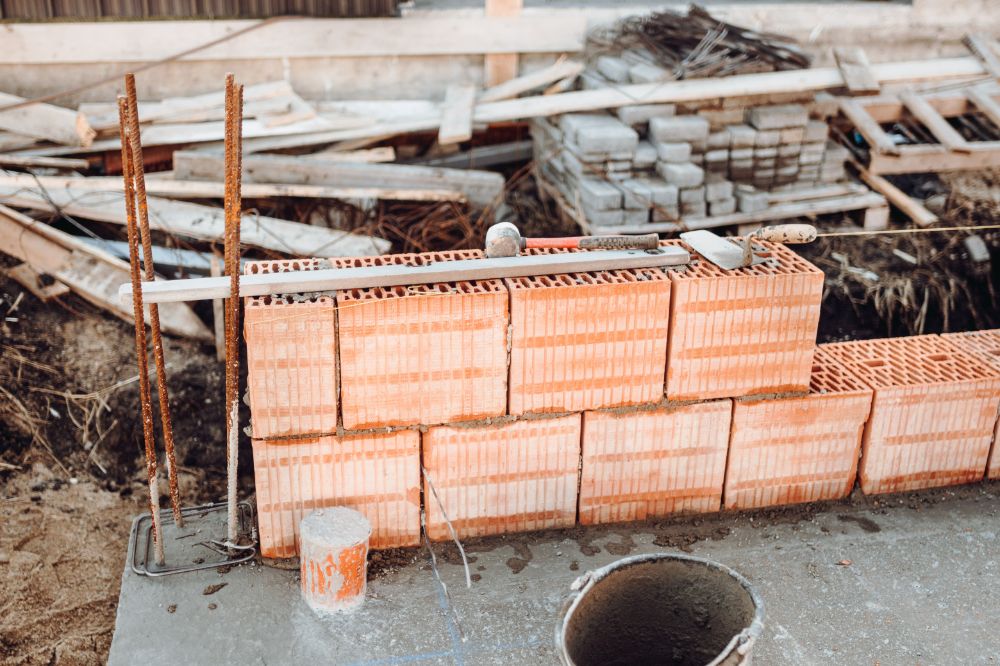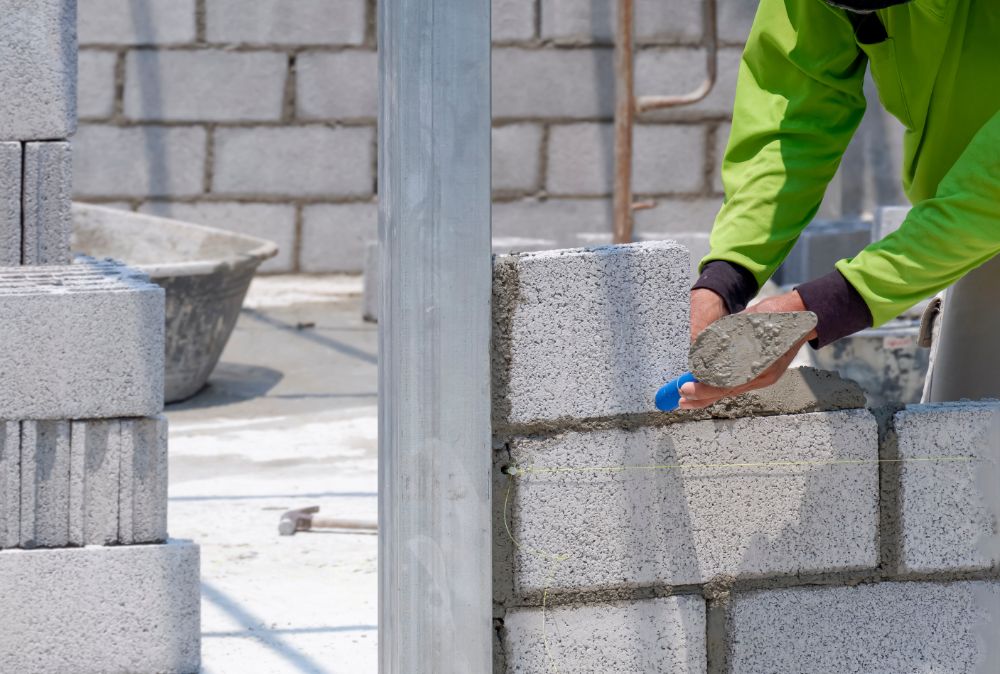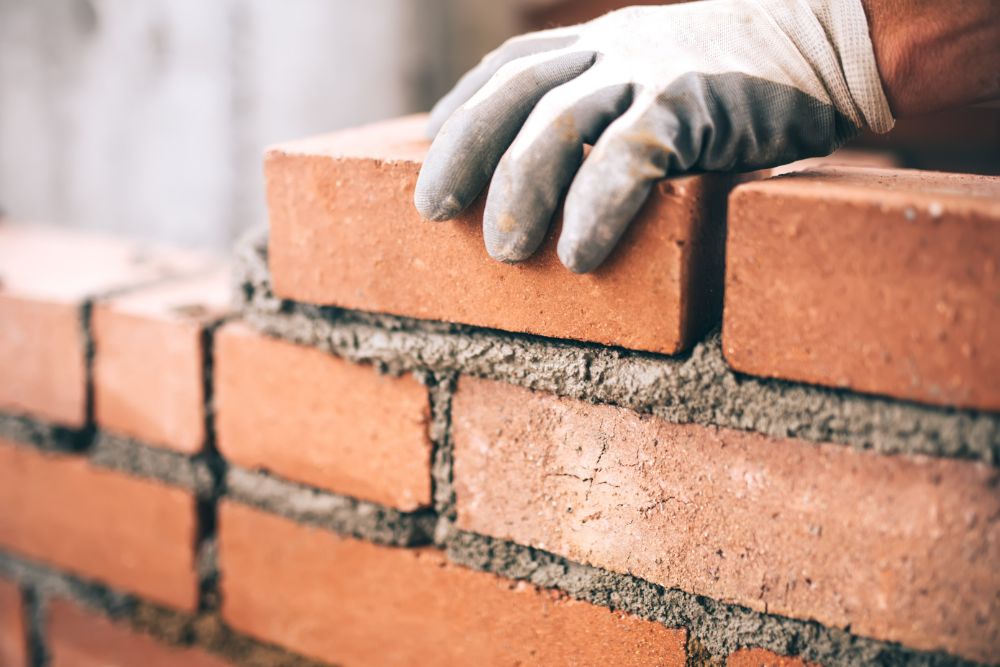What Is Bricklayers Insurance?
Insurance for bricklayers is not just an added expense but a crucial safeguard against occupational hazards that this profession encounters. From working at heights to handling heavy materials, bricklayers risk injury on a daily basis. They also operate expensive tools and equipment that are vulnerable to damage or theft. Having proper insurance helps bricklayers and their employers manage these risks.
Without adequate insurance, a single incident could spell financial disaster for a bricklayer or contractor. Costly medical bills, lawsuits, and replacing stolen or damaged gear could quickly drain savings and assets. Proper insurance allows bricklayers to continue earning a living despite unfortunate events. It also demonstrates credibility and reliability to clients.
While insurance adds overhead costs, those pale in comparison to the catastrophic costs that could result from uncovered incidents. No contractor or bricklayer should be without the protection and peace of mind that the right insurance coverage provides.
The potential risks faced by bricklayers that could necessitate insurance
- Injuries from falls, muscle strains, cuts, and other on-site accidents
- Vehicle collisions traveling to job sites
- Damage or theft of expensive masonry tools and equipment
- Third party injury or property damage liability claims
- Natural disasters damaging worksites or equipment
Understanding the Basics

Bricklayers insurance provides essential financial protection for contractors against the risks inherent in their work. This type of insurance covers a range of potential liabilities and losses that bricklayers may face.
What Bricklayers Insurance Typically Covers
The main areas of coverage in a standard bricklayers insurance policy include:
- Tools and equipment – Covers loss or damage to work tools and equipment either on or off the work site.
- Vehicles – Provides coverage for company vehicles used for business purposes.
- Personal injury – Protects against claims of injury or illness suffered by employees.
- Public liability – Covers legal costs and compensation for third party injury or property damage.
Types of Insurance Policies
Bricklayers will need to consider what type of insurance policy makes the most sense for their business situation and coverage needs. Here are some of the main options:
- Business package policy – Combines multiple covers like public liability, tools, vehicle, etc. into one policy.
- Tradesmen insurance – Tailored policies for tradespeople covering tools, liability, vehicles, and more.
- Public and product liability – Covers third party injury and property damage claims.
- Contract works insurance – Covers damage to buildings/structures worked on.
Bricklayers should work with an experienced insurance broker to determine the right policy with adequate coverage limits and premiums that fit their budget.
Why Bricklayers Insurance is Essential for Contractors
Having the proper insurance coverage is crucial for bricklayers and other contractors in the construction industry. Bricklayers face a number of risks on the job site that could lead to costly damages or legal issues if not properly insured. Here are some of the key reasons bricklayers insurance is so important.
Protecting Against Financial Loss
One of the main purposes of insurance is to provide financial protection in the event of an unexpected loss. Bricklayers insurance allows contractors to transfer many common risks to the insurance company. For example, policies typically cover the bricklayer’s tools and equipment against theft or damage. Without this coverage, replacing stolen or broken equipment could be very expensive.
Insurance also protects against third-party property damage and bodily injury claims. If a bricklayer accidentally damages a client’s property or injures someone on site, liability insurance covers the legal costs and payouts. This prevents these incidents from putting the contractor out of business.
Safeguarding Business Operations
In addition to covering specific losses, bricklayers insurance provides general protection to the contractor’s business operations. Many clients require proof of insurance before hiring a bricklayer to ensure they are working with a legitimate, insured business. Having an up-to-date policy is essential for securing new client contracts.
Insurance also allows contractors to stay in business after an unexpected loss that would otherwise shut down operations. The payouts from claims help cover rebuilding costs and lost income during rebuilding. This business continuity protection is invaluable.
Building Credibility
Carrying proper insurance demonstrates a contractor’s credibility and commitment to protecting their clients. It shows the bricklayer has a long-term perspective and is managing risks appropriately. Prospective clients are more likely to hire a bricklayer they view as a true professional with all the right coverages.
In summary, bricklayers insurance provides financial protection, ensures business continuity, and builds credibility with clients. All contractors should carry tailored policies to manage their unique risks.
Tips for Choosing the Right Policy
When looking for the right bricklayers insurance policy, it’s important to take the time to compare different providers and policies. Here are some tips for choosing insurance that meets your business needs:
Compare Coverage Limits and Options
Policies can vary widely in terms of the coverage limits offered. Make sure to look at the maximum payouts for property damage, liability claims, medical expenses, and other areas. Also check what add-ons may be available, like tool coverage or vehicle damage protection.
Understand Policy Exclusions
Pay close attention to what scenarios or damages a policy won’t cover. For bricklayers, common exclusions may include wear and tear, pre-existing conditions, non-compliance with building codes, or work done while intoxicated. Know what’s excluded so there are no surprises if you need to file a claim.
Consider Your Risk Exposure
How much insurance you need depends on the size of your business, number of employees, types of jobs, and assets you need to protect. A higher-risk business doing large commercial jobs will need higher coverage limits than a small residential contractor.
Compare Premium Costs
Premiums can vary dramatically between insurers, so it pays to shop around. Get quotes from several providers and compare out-of-pocket costs. However, don’t choose based on price alone – make sure you’re comfortable with the policy limits, exclusions, and deductibles too.
Look for Value-Added Services
Some insurers offer risk management guidance, on-site assessments, or other services alongside coverage. These can help you strengthen safety and reduce claims. Consider policy perks when choosing insurance.
Work With an Insurance Broker
An experienced insurance broker understands the needs of bricklayers and can help you find tailored coverage at a competitive price. They’ll shop policies on your behalf and walk you through important considerations. Partnering with a broker takes the guesswork out of choosing insurance.
With the right insurance partner, you can protect your business from the risks inherent in bricklaying work. Taking the time to make informed choices ensures you get a policy that fits your needs and budget.
Making a Successful Insurance Claim

Filing a successful insurance claim starts with proper documentation from the moment an incident occurs. Bricklayers should take photos and videos of any damage, record statements from witnesses, and save relevant receipts or invoices. Having a paper trail is crucial for proving that an incident took place and the extent of the losses incurred.
When beginning the claims process, bricklayers should notify their insurance provider as soon as possible. Many policies have strict notification windows, so prompt action is essential. Provide the insurance company with a detailed account of what transpired along with all documentation that has been gathered.
Throughout the claims process, bricklayers need to be highly responsive to any requests from the insurer. Missing deadlines for submitting forms or paperwork can lead to denial of a claim. Maintain clear communication with the claims adjuster and clarify any points of confusion about the policy or process.
For complex claims, getting assistance from a public claims adjuster or insurance lawyer can be beneficial. These professionals have experience negotiating with insurance providers and making sure policyholders get fair settlements. Their expertise can prove invaluable if a claim is disputed or denied by the insurer.
Lastly, bricklayers should be persistent and patient during the claims process. Insurance providers will investigate thoroughly before approving a claim, which takes time. Follow up regularly for status updates but avoid being overly aggressive in demanding a payout.
With diligent documentation, prompt notification, and persistence, bricklayers can successfully navigate the claims process. Being prepared and proactive is the best way to ensure an insurance policy delivers on its promise to protect the policyholder when misfortune strikes.
Navigating Common Challenges
When it comes to bricklayers insurance, contractors often face a few common challenges that can make managing policies difficult. Here are some of the typical issues that come up, along with tips for overcoming them:
Misunderstanding Policy Terms
Insurance policies can be filled with complex legal jargon that is difficult to interpret. Many contractors struggle to fully grasp what their bricklayers insurance actually covers. To avoid problems, it’s important to take time to read through policies carefully and ask questions. Consider having an insurance broker explain any unclear sections. Make sure you understand policy limits, exclusions, deductibles, and claims procedures.
Dealing with Claim Disputes
Even when you think you are clearly covered, insurance providers may reject or dispute claims. Common reasons include improper documentation, uncovered losses, or delays in reporting the incident. When facing a rejected claim, remain calm and gather all supporting documents, photos, statements, and other evidence. If the dispute continues, consider hiring a public adjuster to advocate on your behalf.
Solutions
Here are some tips for overcoming hurdles with bricklayers insurance:
- Work with an insurance broker or agent who specialises in policies for bricklayers. Their expertise can help avoid coverage gaps.
- Take detailed photos and notes documenting job sites, equipment, incidents, etc. This provides proof if claims arise.
- Read policies thoroughly and clarify any confusing language with your provider.
- Negotiate with insurers for optimal coverage limits and premiums.
- File paperwork meticulously and meet all documentation deadlines.
With proactive planning and attention to detail, contractors can navigate the complex world of bricklayers insurance more smoothly. Seeking assistance from professionals can also minimise hassles when issues occur.
Conclusion
We’ve covered a lot of ground in this blog post on bricklayers insurance. By now, you should have a solid understanding of what this type of insurance is, why it’s so important for contractors, and how to choose the right policy for your business.
But knowledge is only useful if put into action. Here are a few key steps I recommend you take after reading this guide:
Review Your Current Insurance Coverage
Take some time to thoroughly review your existing bricklayers insurance policy. Make sure you understand what is and isn’t covered. Look for any gaps or inadequacies in your coverage limits or exclusions. Knowing exactly where you stand is the first step toward getting the protection you need.
Shop Around and Compare Quotes
Don’t just automatically renew your current policy. Reach out to several reputable insurance providers and brokers to request quotes. You may be able to find more robust coverage at a lower cost. Comparing options side-by-side is the best way to secure the optimal bricklayers insurance policy.
Consult with an Insurance Advisor
If you’re feeling overwhelmed, don’t hesitate to work with an experienced insurance advisor. They can explain crucial terminology, provide personalised policy recommendations, and negotiate on your behalf. An advisor makes obtaining the right insurance smooth and stress-free.
Following these steps will ensure you have bricklayers insurance that fully protects your business. No contractor wants to gamble with their livelihood, so review your coverage today.
FAQs
What exactly is bricklayers insurance?
Insurance for bricklayers is a specialised coverage tailored to protect bricklayers from occupational hazards they encounter, such as injuries, tool/equipment damage, or third-party liabilities. This insurance is crucial as it provides a safeguard against potential financial setbacks that can arise from these risks.
What are the primary types of insurance policies for bricklayers?
The two primary types of insurance vital for bricklayers are liability insurance and property insurance. Liability insurance covers legal costs and compensation arising from third-party bodily injury or property damage, while property insurance caters to losses or damages to tools, equipment, vehicles, and other business assets.
Why is it important for bricklayers to have insurance coverage?
Insurance is paramount for bricklayers due to the numerous risks associated with their profession. From potential injuries on the job to equipment damage or theft, insurance ensures that these professionals and their employers can handle such unforeseen challenges without enduring overwhelming financial burdens. Additionally, having insurance underpins credibility and trustworthiness to clients.
How can a bricklayer choose the right insurance policy for their needs?
To select the most fitting policy, bricklayers should compare coverage limits, understand policy exclusions, assess their risk exposure, and compare premium costs from various providers. Working with an experienced insurance broker can also provide tailored recommendations based on a bricklayer’s specific needs and risks.
What should a bricklayer do if their insurance claim is disputed or denied?
If facing a rejected claim, it’s essential to remain calm and gather all pertinent documents, photos, and evidence to support the claim. If the dispute persists, consider employing a public adjuster or insurance lawyer to advocate on your behalf and ensure you receive a fair settlement.







